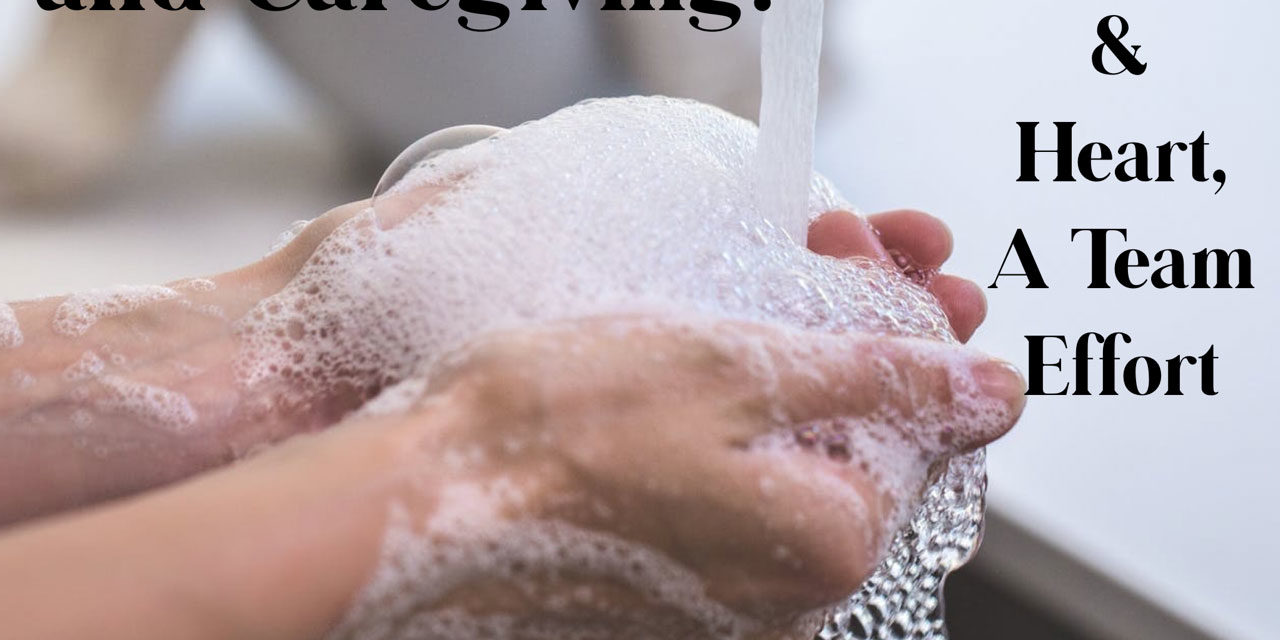The worldwide spread of the coronavirus (or COVID-19) can seem scary, particularly to the elderly and infirm.
You may wonder what you can do as a caregiver to protect your ailing loved one.
First, don’t panic. A tiny proportion of the public currently has the disease, and recovery rates are high.
Still, no one wants to catch the infection, particularly the elderly or those with underlying health conditions, for whom it is much more dangerous.
So what can you do?
Here is a summary specifically for caregivers based on the Centers for Disease Control and Prevention’s recommendations:
1) The Basics
As has been reported repeatedly in the media, the main way to protect yourself and your loved ones is through frequent hand washing with soap and water for at least 20 seconds. In addition, refrain from touching both one’s face and public surfaces, if possible. Interrupting person-to-person transmission is the best way to stem the spread of the disease.
2) Stock Up on Supplies
Don’t feel compelled to buy up everything at your local grocery store, but do get a two-week supply of grocery items like food, toiletries, and pet food. Also buy specialty items, such as medications, including both normally needed prescriptions and over-the-counter cold and fever medicines. Basically, you want to have on hand anything that might be necessary if you need to quarantine at home for a couple of weeks.
3) Stay Home
Ideally, you and your loved one should avoid crowds, cruises, and air travel. Instead, enjoy staying home for a while. If you or your loved one must go out in public, try to stay 6 feet away from others, and generally limit close contact.
4) Have a Plan
What would you do if you became sick and couldn’t care for your loved one? What would you do if your loved one became ill instead? Make sure you have friends, family, or neighbors who could step in to help if illness strikes. Also, consider how to quarantine someone at home and prepare by checking out the guidelines at CDC.gov. If you or your loved ones develop a fever, cough, or shortness of breath—COVID-19’s three top symptoms—contact a doctor.
Also, be aware that if your loved one is in a nursing home, you might suddenly find you can no longer visit, as many nursing homes are enacting protective rules that ban visitors. If this might become your situation, consider what you can do to stay in contact. Perhaps a Skype or Facetime call might be possible. Discuss your worries with the nursing home, so you can have a plan in place.
Although the coronavirus can seem frightening, it’s important to stay calm. It is very similar to the flu for individuals and is mainly worrisome because of how it might impact our healthcare system if it spreads too quickly.
The best gift you can give your loved one right now is the reassurance that all will be okay—just stay informed and follow the recommended precautions.
Here are some important links to help you learn more:
CDC Latest Updates on the Coronavirus (COVID-19)
CDC High Risk Population: Elderly With Serious Chronic Medical Conditions
Remember: Stay Home, Wash Your Hands, Use Common Sense and Be Safe. This Too Shall Pass. –Kathi Koll
To make an online donation to The Kathi Koll Foundation, please click here.


